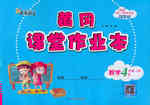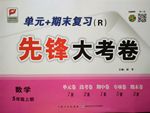题目内容
---________is it from the Children's Palace to Nanjing South Railway Station, Tom?
--- About 10 minutes' ride by bus
A. How soon B. How long C. How far D. How much
练习册系列答案
 教育世家状元卷系列答案
教育世家状元卷系列答案 黄冈课堂作业本系列答案
黄冈课堂作业本系列答案 单元加期末复习先锋大考卷系列答案
单元加期末复习先锋大考卷系列答案
相关题目
题目内容
---________is it from the Children's Palace to Nanjing South Railway Station, Tom?
--- About 10 minutes' ride by bus
A. How soon B. How long C. How far D. How much
 教育世家状元卷系列答案
教育世家状元卷系列答案 黄冈课堂作业本系列答案
黄冈课堂作业本系列答案 单元加期末复习先锋大考卷系列答案
单元加期末复习先锋大考卷系列答案